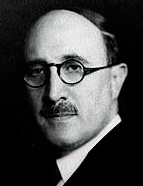

CSA would only return to Spain after the death of Francisco Franco and the end of the dictatorship. He refused the invitations that had been sent to him in previous decades, believing that returning would mean capitulating. He also respected his commitment not to offer opinions or judgments that could interfere in Argentine politics, particularly during the early years of Perón's government. Even so, from 1946 he served as president of the Asociación de Intelectuales Demócratas Españoles [Association of Spanish Democratic Intellectuals] and, between 1962 and 1971, as president of the government of the Spanish Republic in exile. Far from his family, with little interest in the present, and always carrying two watches — one set to Spanish time and the other to Argentinian time — he spent forty years thinking about Spain from a distance. Separated by an ocean from the archives and documents, the files he had managed to recover twice and bring with him to America became the main foundation of his work. He formed an important school of disciples, taught at the Universidad de Buenos Aires [University of Buenos Aires], led the Instituto de Historia de España [Institute of Spanish History], founded the journal Cuadernos de Historia de España , and cultivated a sense of nostalgia while constantly questioning what he called the Spanish mystery —the "historical enigma" that also became the title of his book, written in response to the essay España en su historia. Cristianos, moros y judíos [Spain in its history. Christians, Moors and Jews] by Américo Castro, published in 1948.
In his text, Castro began with the idea that the historian is a "biographer of peoples" and rejected the notion of a unified Spanish identity before the 8th century. He argued that Jews and Muslims were central to the creation of national culture. CSA, for his part, downplayed the importance of Islam in Iberian identity and denied that there had been a true symbiosis between cultures. In short, the former believed that the defining features of the "vital home" were oriental and Semitic, while the latter emphasised the Latin and Christian essence of the "temperamental context" of the historical people. The most striking aspect of this very interesting controversy is that it pitted two scholars, both trained at the Centro de Estudios Históricos and following parallel paths, against each other. They defended two contrasting views of what Spain had been and what it was, both from exile. As a result of the war, one of the main intellectual debates of the 20th century on Spanish identity took place thousands of kilometres from the Peninsula. Regarding the origin of Portugal, both authors supported the theory of chance — the idea that the territory became independent by "accident" —, this theory would later be contested by Jaime Cortesão in his 1959 essay "Causas da independência de Portugal e da formação portuguesa do Brasil" [Causes of independence from Portugal and the Portuguese formation of Brazil], in 1959.
This work is financed by national funds through FCT - Foundation for Science and Technology, I.P, in the scope of the projects UIDB/04311/2020 and UIDP/04311/2020.
